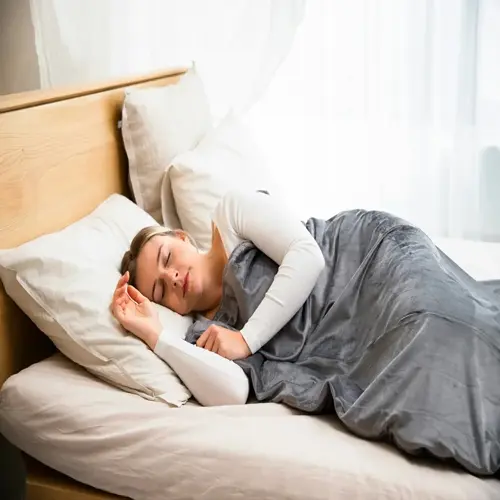Can exercise timing impact sleep depth?

Written by
Gina Mason
Reviewed by
Prof. Graham Pierce, Ph.D.The timing of your workouts can play a considerable role in terms of physiological mechanisms that also affect the quality of your deep sleep. You see, your body regulates its core temperature in response to different workout times in various ways. After investigating my own sleep patterns for a little while, I found a workout schedule that worked best for me. Morning workouts allowed for a better cooling-off period at night, but evening workouts disrupted this. Timing your workouts right enhances, rather than limits, your restorative sleep.
Exercising in the morning or afternoon also helps to align the temperature regulation elements of sleep physiology with natural temperature regulation. When you exercise, your core temperature temporarily increases, producing a significantly larger cooling effect afterwards. I personally run before work and notice that I get a deeper sleep as a result of this than if I run in the evening. To effectively perform its deep sleep function, your body needs a temperature drop. Proper timing of exercise facilitates such temperature regulation commensurate with the circadian biology.
Morning Workouts
- Complete exercise before 10 AM for best results
- Natural light exposure enhances circadian benefits
- Temperature peaks early allowing nighttime cooling
- Creates sleep pressure through energy expenditure
Afternoon Sessions
- Schedule between 2-4 PM for optimal temperature drop
- Allows 5+ hours before sleep for cooling
- Avoids morning cortisol peak interference
- Helps relieve workday stress accumulation
Evening Modifications
- Gentle yoga/stretching only after dinner
- Focus on relaxation rather than intensity
- Keep sessions under 30 minutes duration
- Combine with meditation for parasympathetic activation
Consistency Factors
- Maintain regular workout times daily
- Gradually increase intensity over weeks
- Align exercise days with sleep tracking
- Adjust timing based on personal recovery patterns
Do not exercise vigorously for at least 3 hours before bed. This increases heart rate and body temperature, causing an activation of the sympathetic nervous system. I found that morning spin classes significantly improved my sleep. Your body needs to cool down, not heat up, before you begin to sleep.
Light stretching, 1-2 hours before bed, fosters genuine relaxation. Yoga postures, in particular, help relax muscles and lower cortisol levels. I do 15 minutes of stretching each night. This helps prepare your body for deep, uninterrupted sleep cycles. With consistent timing, these techniques can significantly improve sleep quality within 3-4 weeks.
Read the full article: 10 Ways to Sleep Deeper Tonight

